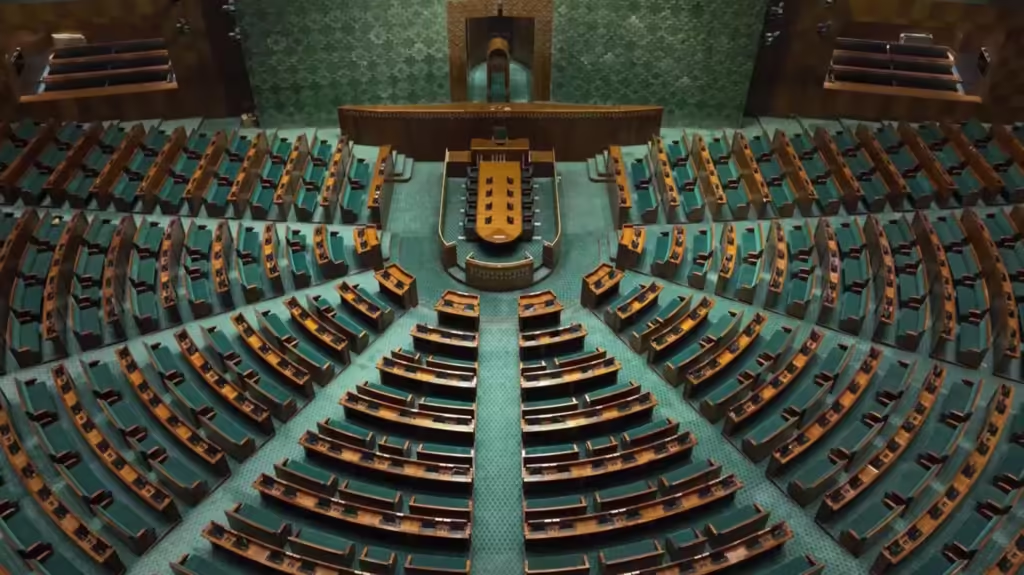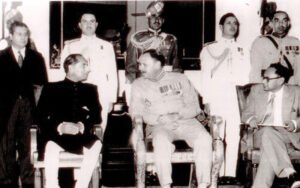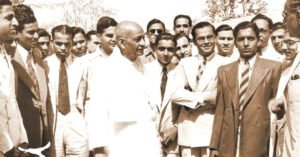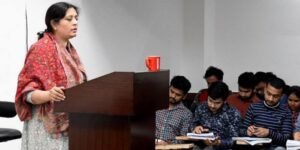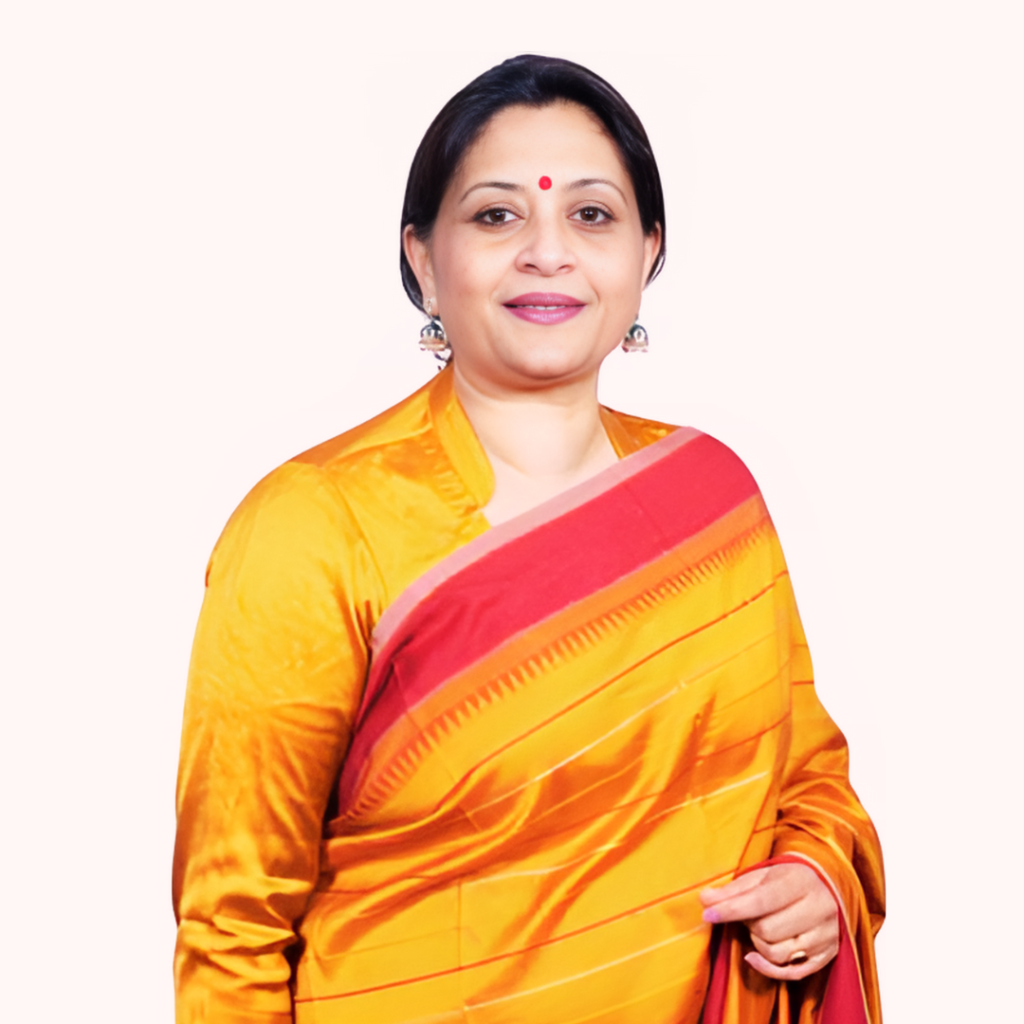The Role of the Lok Sabha Leader of Opposition: A Pillar of Indian Democracy
In the vibrant tapestry of Indian democracy, the Lok Sabha Leader of Opposition (LoP) holds a critical position, often referred to as the voice of the dissenting populace. The role, responsibilities, and significance of the LoP are pivotal in ensuring the checks and balances that prevent an autocratic drift in the democratic setup of India.
Historical Background
To understand the role of the Leader of Opposition in the Lok Sabha, it’s essential to delve into its historical context. The concept of the Leader of Opposition has its roots in the British parliamentary system, where the opposition party plays a crucial role in scrutinizing the actions of the government. In India, the position was formally recognized with the enactment of the Salary and Allowances of Leaders of Opposition in Parliament Act, 1977. This legislative move came after years of evolving political dynamics post-independence, reflecting the maturing of Indian democracy.
The Symbol of Dissent
The Lok Sabha, the lower house of India’s bicameral parliament, is a theater of political debate and policy formulation. Within this arena, the Leader of Opposition serves as the principal voice of dissent. The importance of this role cannot be overstated in a democracy that thrives on the balance between governance and opposition. The LoP critiques government policies, offers alternative solutions, and ensures that the ruling party is held accountable for its actions. This function is essential for maintaining transparency and integrity within the political system.
One notable instance highlighting the significance of the LoP was during the tenure of Atal Bihari Vajpayee. Before he became Prime Minister, Vajpayee was a formidable Leader of the Opposition, known for his eloquent speeches and sharp critiques. His role was instrumental in shaping policies and debates, showcasing how an effective LoP can influence governance even from the opposition benches.
Responsibilities and Powers
The Leader of the Opposition in the Lok Sabha is akin to a shadow Prime Minister, providing an alternative viewpoint on every issue debated in the house. Some of the key responsibilities include:
- Scrutinizing Government Policies: The LoP meticulously examines the policies proposed by the government, highlighting flaws and suggesting improvements. This ensures that the legislation passed is robust and beneficial for the country.
- Voice of the Minority: Representing the views of the minority in the house, the LoP ensures that diverse perspectives are considered. This representation is crucial in a diverse nation like India, where different communities and regions may have varying interests and concerns.
- Debating Key Issues: The LoP leads the opposition in debates, ensuring that critical issues are thoroughly discussed. This debate is not merely about opposing for the sake of opposition but is aimed at constructive criticism and improvement of policies.
- Committee Participation: The LoP is a member of several important parliamentary committees, which play a crucial role in the detailed examination of bills and issues. Their input can significantly shape the outcome of legislative processes.
Anecdotes of Influence
The impact of the Leader of the Opposition can be seen through various anecdotes in Indian political history. One such example is the tenure of Indira Gandhi as the LoP during the Janata Party government in the late 1970s. Despite her previous tenure as Prime Minister and the controversies surrounding the Emergency period, Gandhi’s role as LoP was marked by her assertive leadership and strategic opposition, which eventually led to her political resurgence.
Another memorable instance is the performance of Sushma Swaraj, who served as the Leader of Opposition from 2009 to 2014. Known for her oratory skills and firm stance on various issues, Swaraj effectively highlighted the shortcomings of the UPA government, particularly on matters of corruption and national security. Her role was instrumental in maintaining the pressure on the government and keeping the public informed about critical issues.
Challenges and Criticisms
Despite its importance, the role of the Leader of Opposition is fraught with challenges. One significant issue is the requirement for the largest opposition party to have at least 10% of the total seats in the Lok Sabha to officially recognize the LoP. This stipulation has led to situations where there is no formal Leader of Opposition, as seen in the 16th Lok Sabha (2014-2019) when the Congress party did not meet this threshold. This absence can weaken the opposition’s ability to effectively counterbalance the government.
Moreover, the Leader of the Opposition often faces criticism from within their party and from other opposition parties. Balancing these internal dynamics while maintaining a cohesive opposition front can be a daunting task. The LoP must navigate the fine line between constructive criticism and obstructionism, ensuring that their actions are seen as contributing positively to the democratic process.
The Way Forward
The role of the Leader of the Opposition in the Lok Sabha remains as vital today as it was in the past. In an era of increasing political polarization and strong majorities, the need for a robust opposition to question, critique, and offer alternatives is more critical than ever. Strengthening this role through institutional support and perhaps revisiting the criteria for its recognition could enhance the functioning of Indian democracy.
In conclusion, the Lok Sabha Leader of Opposition is a cornerstone of Indian democracy, embodying the spirit of dissent and the principle of accountability. Through historical precedents, impactful anecdotes, and a clear understanding of their responsibilities, the LoP ensures that the voice of the minority is heard, policies are scrutinized, and the government remains answerable to the people. As Indian democracy continues to evolve, the role of the LoP will undoubtedly remain crucial in shaping the nation’s political landscape.

